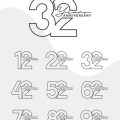1. Introduction to Bazi and Elemental Strength
Bazi, often called the Four Pillars of Destiny, is an ancient Chinese system for understanding a person’s character, potential, and life path. Rooted deeply in Chinese culture, Bazi uses your birth date and time to create a chart with four “pillars” — each representing the year, month, day, and hour you were born. Every pillar consists of two elements: one from the Heavenly Stems and one from the Earthly Branches.
Recently, Bazi has been gaining traction in Western wellness circles as more people look for holistic ways to understand themselves and their destinies. Its appeal comes from blending time-honored Eastern wisdom with modern self-improvement trends found across the United States. Many Americans now use Bazi readings alongside tools like astrology and personality tests to gain deeper insights into life’s challenges and opportunities.
What is Elemental Strength in Bazi?
At the core of Bazi is the concept of elemental strength. In Chinese metaphysics, everything in the universe—including your personality and fate—is influenced by five elements:
| Element | Chinese Name | Symbolism |
|---|---|---|
| Wood | Mu (木) | Growth, Creativity, Expansion |
| Fire | Huo (火) | Passion, Energy, Transformation |
| Earth | Tu (土) | Stability, Nurturing, Support |
| Metal | Jin (金) | Strength, Structure, Discipline |
| Water | Shui (水) | Wisdom, Flexibility, Flow |
Your Bazi chart shows which elements are strong or weak at your time of birth. The balance—or imbalance—of these elements can reveal a lot about how you approach relationships, work, health, and decision-making. For example, someone with strong Fire may be energetic and passionate but could also be prone to burnout if Fire dominates their chart.
Why Elemental Strength Matters in Bazi Readings
The strength of each element in your chart isn’t just symbolic; it plays a key role in shaping your destiny according to Bazi practitioners. By analyzing elemental strength, a Bazi expert can help you identify your natural talents and areas where you might need extra support. Understanding your elemental profile can also guide lifestyle choices—like career moves or personal relationships—that align better with who you truly are.
2. The Five Elements: Foundations and Symbolism
In Bazi, or Four Pillars of Destiny, the world is explained through five essential elements: Wood, Fire, Earth, Metal, and Water. Each element carries a unique energy that shapes your personality, strengths, and challenges. To make it easier for American readers to connect with these concepts, lets explore both their traditional meanings and how they might relate to familiar ideas in U.S. culture.
What Are the Five Elements?
| Element | Traditional Meaning | American Cultural Parallels |
|---|---|---|
| Wood | Growth, flexibility, creativity | The “go-getter” or visionary—like an entrepreneur starting a new business or the springtime of life when everything feels possible |
| Fire | Passion, transformation, action | The charismatic leader or performer—think of someone with “fire in their belly” or the vibrant summer season filled with activity and energy |
| Earth | Stability, support, nurturing | The reliable friend or community builder—similar to someone being called “down to earth” or the steady feeling of fall harvest time |
| Metal | Structure, discipline, clarity | The planner or analyst—like someone with a “steel will,” or those who value organization and precision (think autumn’s crispness) |
| Water | Wisdom, adaptability, flow | The creative thinker or problem-solver—those who “go with the flow” or adapt easily to new situations, much like winter’s reflective quietness |
How Do These Elements Shape Who You Are?
Just as Americans might describe themselves as having a fiery personality or a grounded outlook on life, Bazi uses these elements to explain why we act and react the way we do. Each person’s birth chart is made up of a unique mix of these energies. For example:
- A Wood-strong person: Might be ambitious and always seeking growth—like a start-up founder chasing new ideas.
- A Fire-strong person: Could be outgoing and inspiring—similar to a motivational speaker who lights up every room.
- An Earth-strong person: May bring stability to friends and family—like someone known for always being there in tough times.
- A Metal-strong person: Might excel in structured environments—think of engineers or accountants who thrive on order.
- A Water-strong person: Is likely adaptable and intuitive—great at finding creative solutions when plans change unexpectedly.
The Five Elements Across Life Stages and Personality Types
You can also think of the five elements as representing different stages of life—a concept familiar from American analogies like “spring chicken” (youthful), “in full bloom” (adulthood), or “in the autumn of life” (maturity). Just as each season brings its own strengths and qualities, so does each element in your Bazi chart help guide your journey through life’s many chapters.
![]()
3. How Elemental Strength Shapes Your Personality
Bazi, also known as the Four Pillars of Destiny, is an ancient Chinese system that uses five elements—Wood, Fire, Earth, Metal, and Water—to interpret your personality and life path. In Bazi, each person’s birth chart contains these elements in different strengths and combinations. Just like popular Western personality tests such as MBTI or Enneagram, your dominant or weak element can influence how you think, feel, and relate to others.
Dominant vs. Weak Elements: What Do They Mean?
When one element is especially strong or weak in your Bazi chart, it tends to shape your behavior and attitudes. Here’s a simple way to look at how this works:
| Element | If Dominant | If Weak |
|---|---|---|
| Wood | Creative, growth-oriented, ambitious; likes new ideas and personal development (similar to MBTI “ENFP” or Enneagram Type 7) | Lack of direction, indecision, struggles with initiating projects |
| Fire | Charismatic, passionate, energetic; enjoys socializing and leading (like MBTI “ENTJ” or Enneagram Type 3) | Easily discouraged, lacks motivation, finds it hard to express passion |
| Earth | Grounded, reliable, nurturing; values stability and loyalty (similar to MBTI “ISFJ” or Enneagram Type 2) | Anxious about change, insecure, overly cautious |
| Metal | Disciplined, determined, principled; focused on goals (like MBTI “ISTJ” or Enneagram Type 1) | Trouble setting boundaries, lacks self-discipline, may feel lost without structure |
| Water | Adaptable, intuitive, resourceful; loves learning and exploring (similar to MBTI “INFP” or Enneagram Type 4) | Difficulties coping with stress, feels overwhelmed by emotions or situations |
How Elemental Strength Impacts Decision-Making and Relationships
Your elemental profile not only affects how you see yourself but also shapes how you make decisions and interact with others. For example:
- A strong Fire element: You might be quick to take action and enjoy being around people but sometimes act impulsively without considering all the facts.
- A weak Earth element: You could find it tough to commit or build trust in relationships because you’re always worried about what might go wrong.
- A dominant Metal element: You likely value honesty and order in your friendships but may come across as rigid or demanding.
- A weak Water element: You might avoid emotional conversations or struggle to adapt when plans change unexpectedly.
Bazi Meets Western Personality Tests
If you’ve ever taken an MBTI test or explored the Enneagram types, you’ll notice some similarities. Both systems aim to help you understand your unique strengths and challenges. While MBTI focuses on cognitive preferences and Enneagram explores motivations and fears, Bazi uses the language of nature’s elements to paint a holistic picture of who you are. It’s another way to discover why you click with certain people or thrive in particular environments.
4. Elemental Balance and Life’s Trajectory
In Bazi, finding balance among the Five Elements—Wood, Fire, Earth, Metal, and Water—is believed to be essential for a harmonious and fulfilling life. Just as a balanced diet supports physical health, elemental harmony can help support your personal growth and life trajectory. When one element is too strong or too weak in your Bazi chart, it may show up as challenges or imbalances in daily life, relationships, or career choices.
Understanding Elemental Harmony
The idea is simple: each element brings unique strengths and qualities. For example:
| Element | Main Qualities | Potential Imbalance |
|---|---|---|
| Wood | Growth, flexibility, kindness | Too much: restlessness; Too little: stagnation |
| Fire | Passion, energy, leadership | Too much: impulsiveness; Too little: lack of motivation |
| Earth | Stability, reliability, nurturing | Too much: stubbornness; Too little: insecurity |
| Metal | Logic, structure, discipline | Too much: rigidity; Too little: indecisiveness |
| Water | Wisdom, communication, adaptability | Too much: overthinking; Too little: poor communication |
Practical Ways to Cultivate Elemental Balance
If you notice certain elements are out of balance in your life—whether from a Bazi reading or personal observation—you can try these familiar American self-development strategies:
Mindfulness Practices
- Meditation: Helps calm an overactive Fire element by promoting inner peace.
- Nature Walks: Reconnect with the Wood element through time outdoors, encouraging growth and renewal.
- Journaling: Supports Water element by reflecting on emotions and ideas.
Coaching Tips for Personal Growth
- Set SMART Goals: Bring structure (Metal) to your ambitions by setting goals that are Specific, Measurable, Achievable, Relevant, and Time-bound.
- Seek Feedback: Build Earth’s stability through constructive feedback from mentors or peers.
- Cultivate Gratitude: Strengthen Earth by focusing on what grounds you and acknowledging support systems.
Team-Building Techniques at Work or Home
- Diversity of Strengths: Recognize different elemental traits within a team for better collaboration—some members may bring passion (Fire), others logic (Metal).
- Open Communication: Encourage Water’s adaptability by listening actively and sharing openly in group settings.
- Create Rituals: Use regular check-ins or family dinners (Earth) to build trust and stability in your relationships.
Your Personal Growth Journey with Elemental Awareness
You don’t need to become a Bazi expert overnight. Start by noticing which qualities come naturally to you and where you might feel unbalanced. Using everyday practices like mindfulness meditation, coaching exercises, and team-building activities can help bring your elements—and your life—into greater harmony. By understanding and working with your elemental strengths and weaknesses, you’re taking active steps toward a more fulfilling path forward.
5. Interpreting Your Own Bazi Chart
Ready to dive into your own elemental strengths and see how they shape your destiny? Exploring your Bazi chart may sound intimidating at first, but with a little guidance and the right tools, it becomes an exciting journey of self-discovery.
How to Start: Finding Your Bazi Chart
To begin, you’ll need your birth date and time. Many online platforms can generate your Bazi chart instantly. Here are some reputable resources and apps widely used in the U.S.:
| Resource/App | Description | Website/App Store |
|---|---|---|
| Bazi Calculator by Joey Yap | User-friendly, English interface, detailed breakdowns | joeyyap.com |
| Master Tsai’s Chinese Astrology | Comprehensive free charts, good for beginners | chinesefortunecalendar.com |
| Bazi Hero (Mobile App) | App with interactive charting and learning features | Available on iOS/Android stores |
| Local Bazi Consultants | Personalized readings, cultural sensitivity | Search “Bazi consultant USA” or visit Yelp/Google Reviews |
Reading Your Elements: What to Look For
Your Bazi chart is built from five elements: Wood, Fire, Earth, Metal, and Water. Each element’s strength or weakness in your chart influences different aspects of your personality, relationships, career path, and even health.
Main Points to Explore:
- Your Day Master: This is the main element representing you. Is it strong or weak?
- Elemental Balance: Are any elements missing or overly dominant?
- Supporting Elements: Which elements bring harmony or challenge to your life?
Culturally Relevant Tips for Self-Discovery
Bazi might be rooted in ancient Chinese philosophy, but understanding yourself through the lens of elemental strengths is universal. In American culture, we value personal growth, self-awareness, and practical action. Think of exploring your Bazi as another tool—like Myers-Briggs or Enneagram—to help you unlock your potential.
- Stay Curious: Treat this as a journey rather than a destination.
- Treat Yourself with Kindness: There are no “bad” charts; every combination offers unique opportunities.
- Consult with Professionals: If you want deeper insight, seek out certified consultants familiar with Western perspectives.
- Create a Journal: Write down discoveries about your elements and reflect on how they show up in daily life.
- Connect with Community: Join online forums or local workshops where you can share experiences with others interested in Bazi.
If You’re Curious About the Next Step…
Dive deeper into each element’s meaning and observe how these energies play out at work, at home, and in your relationships. Remember—understanding your elemental strengths is about empowering yourself to live more intentionally and authentically.


